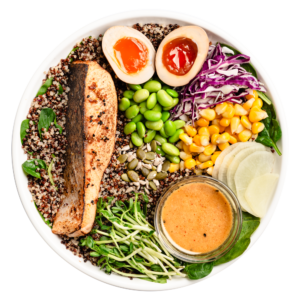Boosting the immune system can be both effective and enjoyable by incorporating functional foods into the diet. These foods provide enhanced health benefits with vitamins, minerals, antioxidants, and other valuable compounds. Discover top functional foods that boost immune health and uncover their remarkable effects.
Citrus Fruits
Citrus fruits, such as oranges, grapefruits, lemons, and limes, are well-known for their high vitamin C content. Vitamin C is a powerful antioxidant that helps protect cells from damage and supports the production and function of white blood cells, which are crucial for fighting infections. Regular consumption of citrus fruits can help reduce the severity and duration of colds and other infections.
Garlic
Garlic, revered for centuries for its medicinal properties, contains compounds like allicin. These compounds enhance white blood cells’ ability to fight viruses such as those causing the common cold or flu. Adding garlic to your diet can help enhance your immune system’s ability to fight off these pathogens.
Ginger
Ginger is another potent functional food with immune-boosting properties. It has strong anti-inflammatory and antioxidant effects, which can help reduce inflammation and improve immune function. Ginger is also known for its ability to combat nausea, making it a great addition to your diet if you’re feeling under the weather.
Yogurt
Probiotics, or the “good” bacteria found in yogurt and other fermented foods, can give your immune system a boost by promoting the production of antibodies and enhancing the function of certain immune cells. Regular consumption of yogurt can help maintain a healthy gut microbiome, which is closely linked to overall immune health.
Spinach
Spinach is packed with numerous nutrients, including vitamin C, vitamin E, and beta-carotene, all of which have immune-boosting properties. These nutrients help protect cells from damage and play a role in the growth and function of immune cells. Additionally, spinach contains various antioxidants and bioactive compounds that help fight off infections.
Almonds
Almonds are a rich source of vitamin E, a powerful antioxidant that helps protect cells from oxidative stress and supports immune function. Just a handful of almonds can provide a significant portion of your daily vitamin E needs, making them a convenient and tasty way to enhance your immune system.
Turmeric
Turmeric contains curcumin, a compound with potent anti-inflammatory and antioxidant properties. Curcumin has been shown to modulate the immune system, enhancing the body’s ability to fight infections and reducing the risk of chronic inflammation. Adding turmeric to your diet, whether in curries, smoothies, or teas, can provide a substantial boost to your immune health.
Green Tea
Green tea is rich in antioxidants, particularly catechins, which have been shown to enhance immune function. Drinking green tea regularly can help protect against cellular damage and support the body’s natural defenses. Additionally, green tea contains amino acids that may aid in the production of germ-fighting compounds in your T-cells.
Broccoli
Broccoli is a superfood packed with vitamins A, C, and E, as well as fiber and numerous antioxidants. Its high nutrient content supports the immune system in various ways, from promoting the production and activity of white blood cells to protecting cells from damage. Including broccoli in your meals can provide a comprehensive boost to your immune defenses.
Blueberries
Blueberries are high in antioxidants, including flavonoids, which can help reduce oxidative stress and inflammation in the body. These compounds enhance the immune system by supporting the function of various immune cells and protecting them from damage. Eating blueberries regularly can contribute to a stronger and more resilient immune system.
Incorporating Functional Foods into Your Diet
Incorporating these functional foods into your diet doesn’t have to be difficult. Here are a few simple tips:
- Start Your Day with Citrus: Kick off your morning with a glass of freshly squeezed orange juice or a smoothie packed with citrus fruits.
- Add Garlic to Your Cooking: Use garlic generously in your cooking, whether it’s in soups, stews, or stir-fries.
- Snack on Almonds: Keep a small bag of almonds at your desk or in your bag for a quick and nutritious snack.
- Sip on Green Tea: Replace one of your daily coffee cups with a soothing cup of green tea.
- Include Yogurt in Your Breakfast: Top your yogurt with fresh berries and a drizzle of honey for a delicious and immune-boosting breakfast.
Functional foods are a powerful tool in supporting and maintaining a healthy immune system. By incorporating these nutrient-dense foods into your daily routine, you can help ensure your body is well-equipped to fend off infections and stay healthy. Remember, a balanced diet combined with regular exercise, adequate sleep, and good hygiene practices is the key to optimal immune function. Stay well and enjoy the delicious journey to better health!




